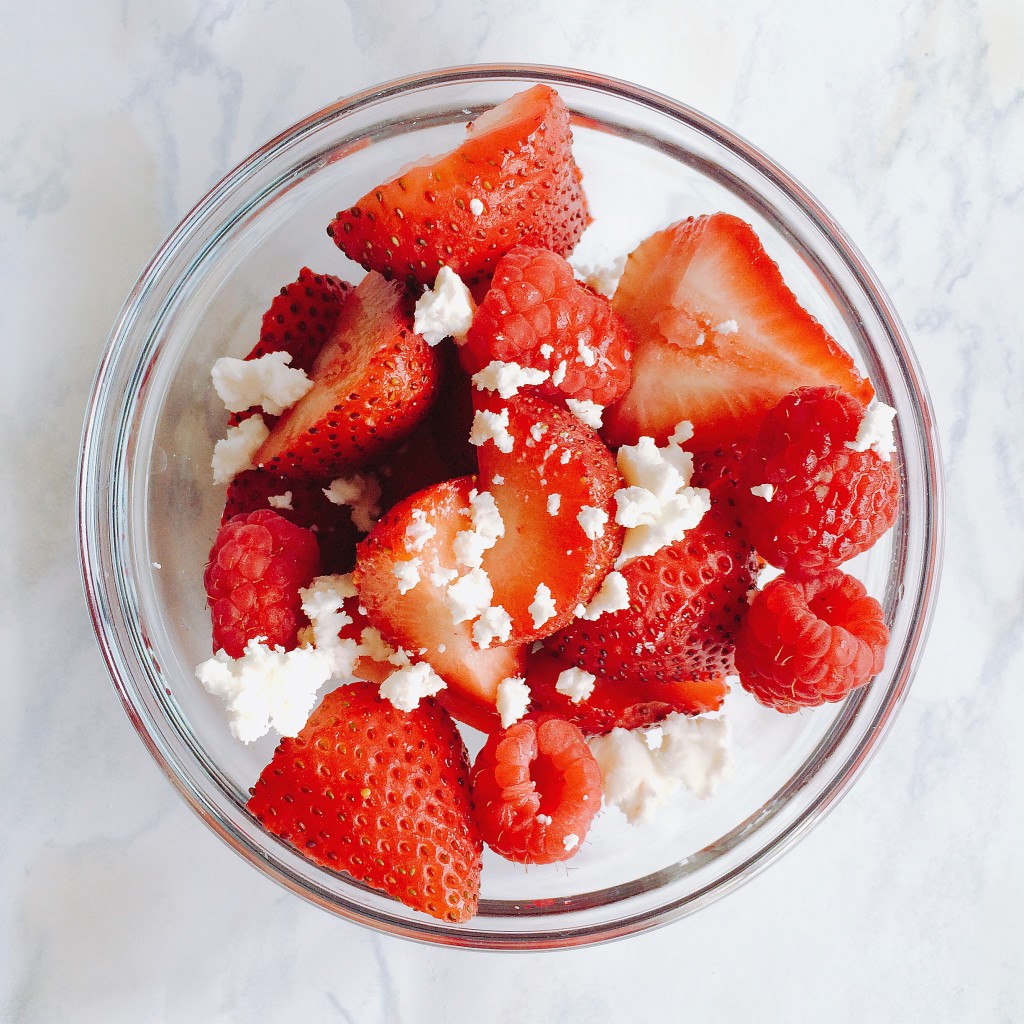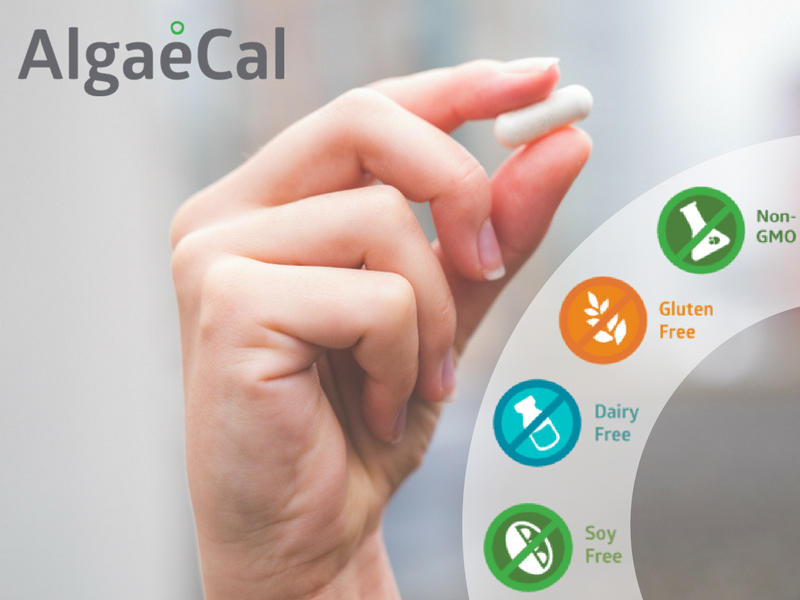This post was sponsored by AlgaeCal as part of a National Osteoporosis Awareness Month campaign.
Even though I wish sometimes that I could just blame my short stature on all the coffee I drank from age 12 on (who am I kidding? I came out of the womb lusting for coffee), the truth is that I come from a long line of tiny, feisty ladies. My dad’s mom was 4’11”, and my mom’s grandmother was about 4’10” at her tallest.
Every family has its share of health history concerns. My family covers, like all the bases and then some. When it comes to prevention, I’ve started to prioritize based on treatment options and known risk factors. While all the diabetes, heart issues, and cancers are concerning, the stuff that makes me really anxious is all the neurology problems like Alzheimer’s and Parkinson’s—that’s a big part of why I focus so much on brain health and am really excited by the research behind the MIND diet.
Of course, there’s some overlap. For example, consuming adequate fat is helpful for blood sugar management, which is key to reducing diabetes risk. The antioxidants in those vegetables and berries that are so great for cognitive function have also been shown to kick major cancer butt. That daily glass or wine recommended as part of the MIND diet may also have some heart benefits.
Another thing I’ve learned not to f*** around with is my skeleton. When AlgaeCal reached out to me about partnering with them to talk about National Osteoporosis Awareness Month, I was glad to be able to help shed some light on a serious health issue that we actually can do something about. Osteoporosis runs in my family, so I do what I can now to help lower my chances of going through something like my great-grandma Bunny did. True story: She broke her pelvis in a Walmart bathroom once when a lady bumped into her and she fell down. At 90, you’re obviously at risk for a lot more health issues than when you’re, say, 19, but you’re far more likely to break something if your bones are brittle.
While we may think of osteoporosis as something that happens to older people, taking steps when we’re younger can help keep our bones healthy and reduce our risk of future problems like fractures and weakness. I recently wrote about a time I learned the hard way how important diet is to supporting bone health and healing a stress fracture-like injury when I was 24. Working in a surgical hospital and seeing what can happen down the road when we don’t take care of ourselves has also driven home how important it is to cover your bases when you’re young.
Throughout your life, you’re constantly losing bone while making new bone. Kids and teens build more quickly than they lose, and peak bone mass is usually reached around age 25 or 30. As you get older, the ratio begins to shift, and you lose more than you form. Bone loss speeds up even more after menopause for women, which is why it’s still important to continue to support strong bones into your thirties, forties, and fifties. Starting off with a strong peak bone mass puts you at a big advantage later in life by decreasing your risk of fractures and osteoporosis.
To help prevent osteoporosis and support healthy bones, the Mayo Clinic recommends that you:
- Get enough calcium and vitamin D and eat a well balanced diet (especially rich in foods that are good for bone health)
- Consume adequate protein (can be plant or animal sources)
- Maintain a healthy weight
- Engage in regular exercise
- Avoid smoking
- Limit alcohol to less than 2 drinks per day
- Prevent falls
Calcium
Calcium is a mineral that’s essential for muscle, nerve, and hormone function as well as bone health. The body likes to maintain a stable serum calcium level, so when we’re low, it will take calcium from the bones to continue functioning (aka resorption). This can lead to weakening of the bones and higher fracture risk. Women under age 50 need about 1000 mg of calcium per day, then 1200 mg after menopause or after age 50. Men under 70 need about 1000 mg per day and 1200 mg per day from 71 on. Just note that pregnancy, lactation, and certain medical conditions impact your needs, so talk to your doctor if you need guidance.
Dairy products like milk, yogurt, and cheese are the best known sources of calcium, but you can also find it in plant foods like broccoli, bok choy, kale, and tofu. For more info on non-dairy calcium, check out my post over on Food & Nutrition Magazine’s Stone Soup blog.
Here’s a handy shopping list of calcium-rich foods.
Vitamin D
Vitamin D helps the body absorb calcium, and vitamin D deficiency has been shown to impair calcium absorption, causing the body to leach it from the bones. Adults under 70 and under require 600 IU per day, and 800 IU per day after age 71. Needs may be higher in athletes and those with very physically demanding occupations, so ask your doctor about whether to aim higher.
Vitamin D can be found in fatty fish like salmon, sardines, and mackerel, as well as in beef, liver, cheese, and egg yolks. Mushrooms have a tiny amount, but you’d need to eat a lot of mushrooms to meet your needs. Because most of the US dairy supply is fortified with vitamin D, keep in mind that if you’re lactose intolerant or avoid dairy for other reasons, you may also be missing out on that vitamin D.
Some other key nutrients for bone health are Magnesium (found in green leafy vegetables, legumes, nuts, seeds, and whole grains) and Potassium (find it in oranges, cantaloupe, bananas, kiwi, avocado, prunes, and apricots, meat, poultry, fish, milk, yogurt, and nuts).
Rather than a daily multivitamin (unless we’re talking prenatals when you’re pregnant, nursing, or trying to conceive or have a medical condition that impacts nutrient needs), I tend to recommend supplements as a way to fill in gaps if you’re having trouble meeting your needs of a particular nutrient or nutrients through food. One of the most common questions I get from clients and patients is which brands to buy—it can be really overwhelming. Depending on what someone’s needs are, I have several brands that I recommend for various purposes.
When it comes to bone health, one brand I recommend is AlgaeCal, whose plant-based calcium supplement (from marine algae, hence the name) also provides trace minerals like magnesium, along with vitamin D3 to help you cover your bases when you’re prioritizing building strong bones. As with any supplement, I would just check with your doctor before starting in order to guard against any potential drug interactions. You also want to go slow with combining it with any other supplements that may provide some of the same nutrients and put you at risk for overdoing it.
For National Osteoporosis Prevention Month, AlgaeCal is running a campaign for National Osteoporosis Month that includes a giveaway of their Bone Builder Pack. If you’re interested to enter, you can hop on over to their page and enter there.
Just as a last note, your nutritional needs and priorities shift over time, so it’s important to check in with yourself and listening to what your body tells you can help you avoid issues down the line. Where we run into trouble is when we try to keep up a routine that may not be the right fit for us anymore—or if we try to follow someone else’s regimen, even if it’s not what we actually need. If you need some guidance, talk to a trusted healthcare provider to help you get on a path that feels like the right one for you.
*
*
*
This post was sponsored by AlgaeCal as part of a National Osteoporosis Awareness Month campaign. I was compensated for my time to write about nutritional considerations for bone health.


